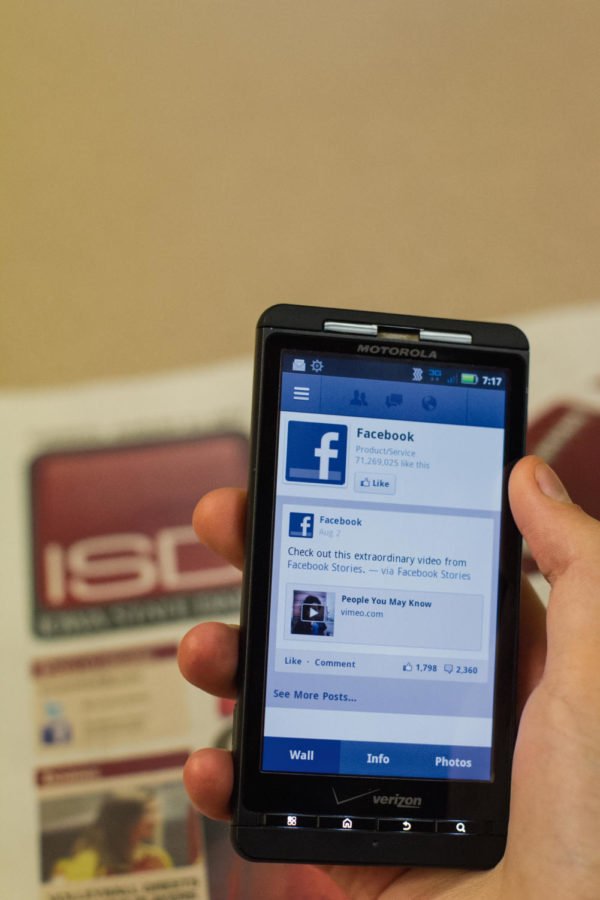Reeder: It only takes 140 characters
August 22, 2012
Have you noticed how news outlets now include tweets as part of the news? Many newscasts now talk about celebrity Twitter accounts and any tweet that is outrageous enough to comment on. It seems as if a person can’t get through a single news report on the TV or read an article in the paper without hearing about a recent tweet from “so-and-so.”
Honestly — who cares? Or better yet — why should I care?
Twitter, like Facebook is a great communication tool if used properly.
But when mishandled, things can go terribly wrong.
Some examples of out-of-line tweets can be seen with the recent London Olympics. With more than 150 million tweets about the Olympics posted during the 16 days of the London Games, Twitter was declared the winner in what some are calling the “Social Olympics.” There were about 80,000 Olympic tweets per minute published after Usain Bolt won the gold medal in the 200-meter final, according to information given by Twitter in an article for the Australian paper The Age.
The tweets started out with Greek triple jumper Voula Papachristou, who tweeted a racist comment mocking African immigrants on her personal Twitter account. Papachristou was expelled from Greece’s Olympic team for saying: “With so many Africans in Greece, at least the West Nile mosquitoes will be eating food from their own home.”
Swiss soccer team player Michel Morganella was the second athlete after Papachristou to be kicked out of the 2012 Olympic Games after posting a racist and threatening tweet saying South Korea’s athletes were “retards” and should “burn themselves” shortly after Switzerland’s 2-1 loss to South Korea. When the French and text-speak tweet is translated into English, Morganella tweeted something along the lines of: “I want to beat up all South Koreans. Bunch of mentally handicapped retards.”
Because of their need to blow off steam or show their racist colors to the rest of the world — it cost them big time. Plus — from now on, whenever their name is brought up they are forever tied to “that tweet”
These types of postings have been happening on Twitter for quite some time and have been making headline news along with negatively affecting those who use the social media tool in the wrong way. Back in 2010, Aussie swimmer Stephanie Rice tweeted “suck that faggots” after Australia beat South Africa at rugby. In recent times, she has been under fire for posting a “racy” picture of herself wearing a two-piece swimsuit that left little to the imagination.
During the 2008 Beijing Olympics, Twitter did not have as big of a role as it did in this year’s London Olympics. “There were more tweets in a single day than during the entire 2008 Beijing Games,” Twitter reps wrote in a blog post.
My favorite part about the aftermath of these rash and senseless tweets is the “I’m sorry” tweet afterward. All three athletes above tweeted their apologies, with Rice even having a tearful news conference, apologizing to the public. Well, if you weren’t careless with your actions, you wouldn’t have anything to pretend to be sorry for. They are not sorry for what they said; they are sorry they got slammed for the tweet.
As always, the few ruin it for the rest of us, giving Twitter an image which teeter-totters back and forth between good and bad.
The solution to the trouble the Olympic athletes got themselves into is to be more discrete, and it applies to the rest of us, too. Take an extra two seconds of your time to think twice about your next post. And if you decide that your mother would be disappointed in you if she saw it, give her the benefit of common sense and don’t make the post.
Maybe the solution is as simple as a short quote from the TV show “The Office”: “Whenever I’m about to do something, I think, ‘Would an idiot do that?’ And if they would, I do not do that thing.”







